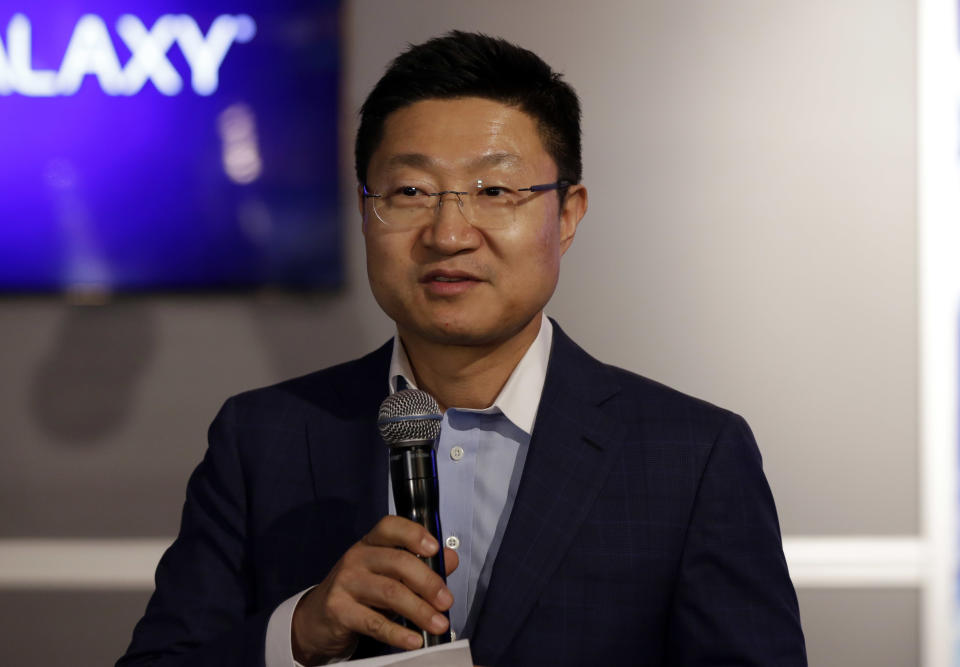Why Facebook and Google are siding with Samsung in its Supreme Court battle with Apple
The Supreme Court will hear a long-running corporate battle on Tuesday over how much Samsung should have to pay its rival Apple (AAPL) for copying the iPhone’s design.
The dispute has attracted over a dozen amicus curiae (“friend of the Court” briefs) arguing the case has wide-ranging implications. One of those briefs came from major tech companies—including Facebook (FB), Google (GOOG, GOOGL), Dell and Hewlett Packard (HPQ)—which asserted the dispute “presented a question of enormous practical importance” to them.
This is the first time the High Court has taken a look at design patents in well over 100 years, four years after a lower court jury found Samsung had copied part of the iPhone’s design and awarded Apple nearly $1 billion in damages that were later reduced.
That question is not whether Samsung copied parts of the iPhone’s design—including its rounded corners, a “bezel” or surrounding rim, a grid of 16 colorful icons and the phone’s “distinctive front face”—among other features, according to Apple’s description.
Rather than deciding the issue of infringement, the Supreme Court justices will decide whether Samsung owes Apple all the profits it made from its infringing phones—or just those profits attributable to the infringing features.

This decision will interpret a design-patent statute passed in 1842, long before the world even contemplated something like the iPhone or its alleged copycats. It was originally used to protect the designs of simple products like wallpaper, rugs and fireplace grates, the tech companies noted in their amicus brief.
But the world is a lot different now, with companies like Samsung making “complex, multicomponent technological products,” the brief noted. If certain elements of those products infringe design patents, then the maker should only have to pay damages attributable to the offending components, according to the amicus brief.
Those tech companies—and Samsung, for that matter—are asking the Supreme Court to overturn a decision last year by the US Court of Appeals for the Federal Circuit that ruled in Apple’s favor. That decision found Apple was entitled to “total profit from the article of manufacture bearing the patented design.”
If it’s allowed to stand, that decision could pave the way for frivolous lawsuits that could hamper tech companies and stymie innovation, the tech companies argue. From the brief:
As predicted by numerous commentators, the Federal Circuit’s decision has already prompted so-called “patent trolls” to threaten design-patent litigation against Samsung and its amici. Meanwhile, companies are applying for and obtaining record numbers of design patents, which are certain to be asserted at similarly growing rates. The ensuing litigation, and threats of litigation, will further undermine innovation and the research and development efforts of amici—a particularly troubling development in light of the spurious quality of many design patents
While a jury initially awarded Apple $930 million back in 2012, the award was later reduced to $548 million. If Samsung succeeds in the Supreme Court, it could stand to get back $399 million of that amount, which was attributed to profits it gained from selling the infringing phones.
Samsung suggests in a statement that this isn’t just about the money, noting, “Samsung took this case to the Supreme Court because we believe the way design patent law has been interpreted is not in line with modern times because it discourages competition, innovation and consumer choice.”

For its part, Apple has contended in a Supreme Court brief that it spent billions of dollars developing the iPhone and that its design played a key role in its success.
A product’s design enables a manufacturer like Samsung to sell a particular product and make a profit in the first place, Apple’s brief notes. “Samsung’s smartphones are sold as single, unitary articles to ordinary purchasers,” the brief notes, “and their infringing designs are closely intertwined with the phones’ hardware and software to create the products’ overall look and feel.”
Apple’s brief also suggests Samsung’s infringement was brazen, noting, “The evidence showed how assiduously Samsung copied Apple’s iPhone in response to its ‘crisis of design,’ and instantly increased its market share,” the brief noted.
In its own brief supporting Apple, the shoemaker Crocs also touched on the importance of design patents. “From its very inception, Crocs has devoted substantial resources to researching, developing, and bringing to market innovative and iconic footwear designs,” the company noted. “Indeed, Crocs’ designs are almost one and the same with its brand.”
Erin Fuchs is deputy managing editor of Yahoo Finance.

